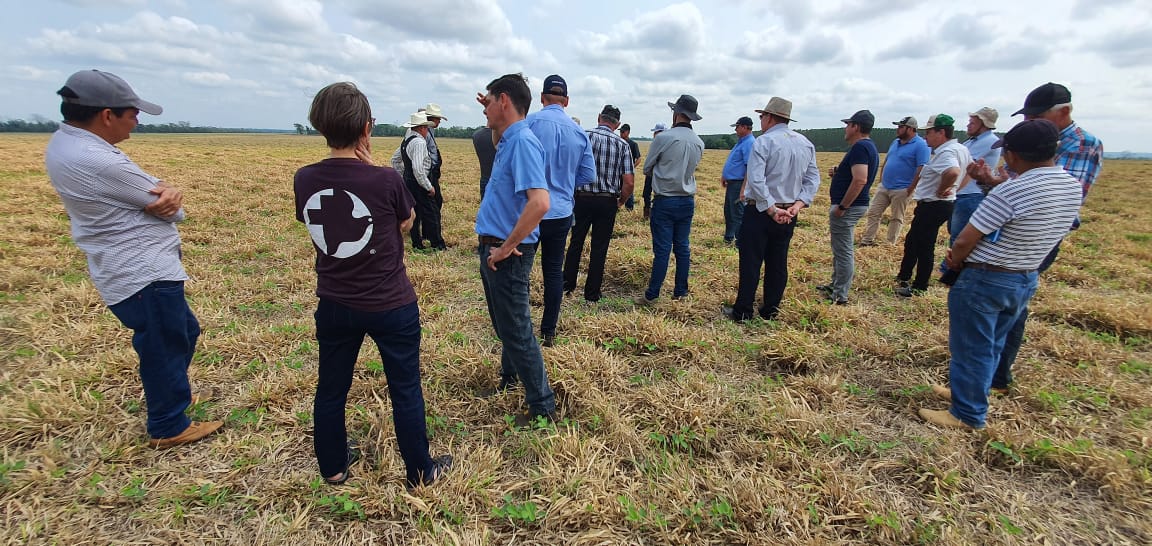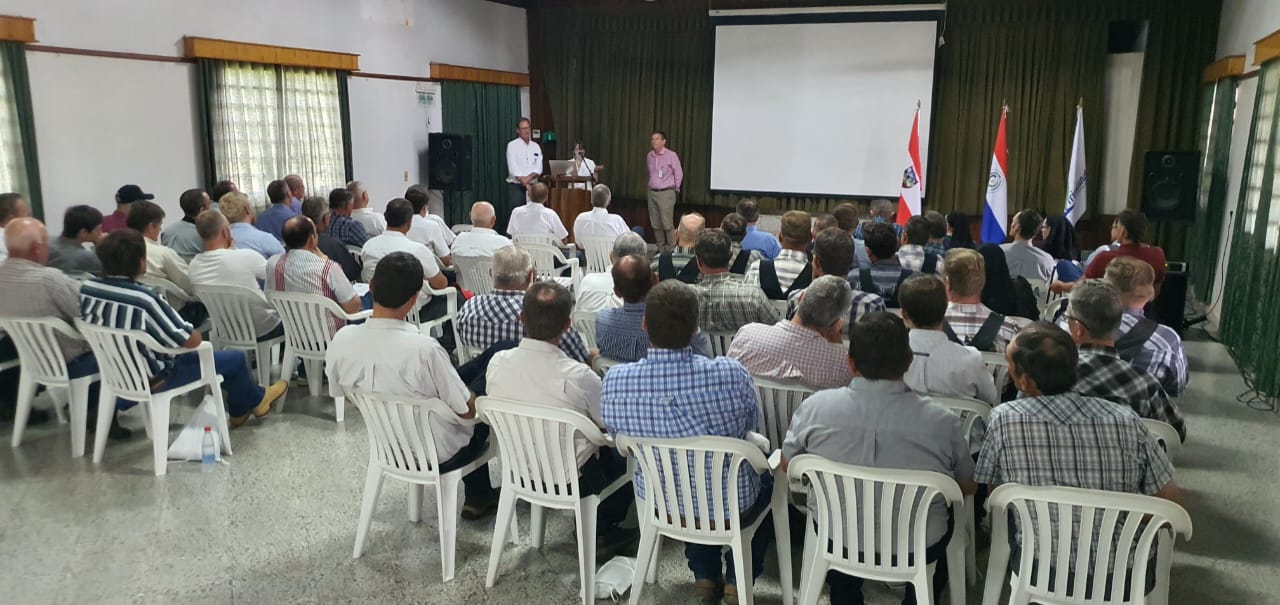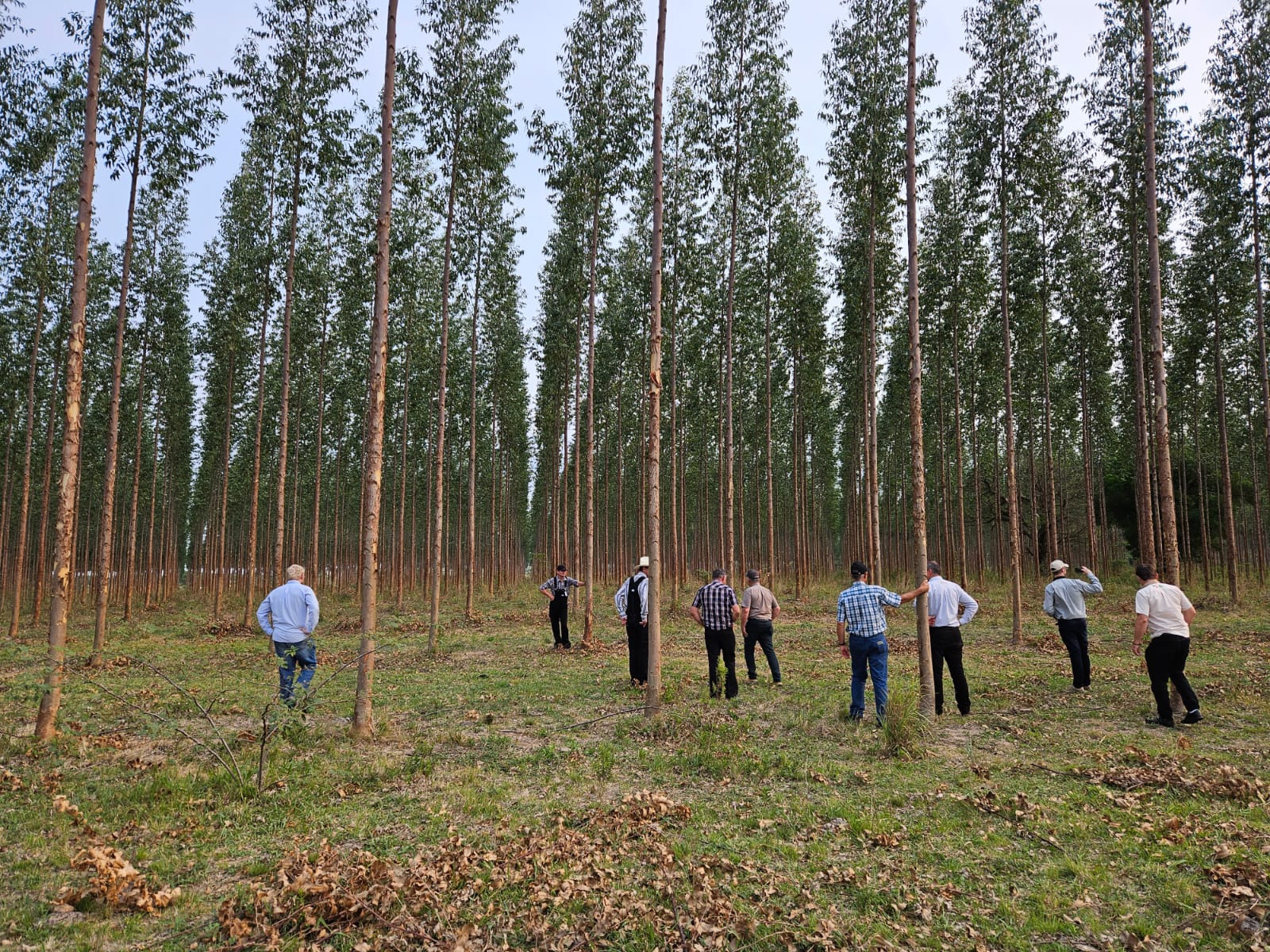First sustainable agriculture seminar a success for Paraguayan Mennonites

Soil erosion was on the minds of the nearly 70 Mennonite farmers gathered last fall at the Friesland Mennonite colony in eastern Paraguay. They gathered at a retreat center at Friesland to discuss how colony farms could prioritize sustainable agricultural practices.
Most farmers came from Paraguay’s Mennonite colonies, with some attendees coming from colonies in Colombia, Mexico and Bolivia. The seminar that brought them together was the first of its kind. Questions were asked about the impacts of climate change on farming, and the answer from those assembled was unanimous: we can adapt, and we must.
Oct. 24, 2023, marked the first day of the Seminar on Sustainable Agriculture in Latin American Low German Mennonite Colonies. This event was organized by the Federación de Cooperativos Productivos (Federation of Productive Cooperatives, or FECOPROD) and the Asociación de Colonias Menonitas de Paraguay (Association of Mennonite Colonies of Paraguay, or ACOMEPA) with support from MCC.

The three-day seminar included a mix of presentations on different sustainable agriculture practices championed by the colonies, presented entirely in Low German, the primary language of Mennonite colonies. Between just the Paraguayan colonies, more than 1.8 million hectares of land are cultivated — around 7,000 square miles, nearly double the total area of the entire island of Jamaica.
During the three days, the farmers visited local producers who are implementing techniques like no-till farming, crop rotation, green fertilizer, ground cover and re-forestation. Leaders from the Friesland and Volendam Mennonite colonies also shared their testimonies of recuperating land that had suffered dramatic soil erosion 30 years ago.
I return home with a lot of learnings and motivation to continue forward with good practices.
Kenny Peters
Seminar attendant and farmer
The testimonies showed that change is possible, but the transition to more sustainable approaches takes time, patience and resources. The challenge ahead for farmers will be learning how to combine and balance economic sustainability with environmental sustainability. Attendees agreed it is the only way forward for farmers on the colonies.

Alfred Fast, director of FECOPROD, also gave a presentation on climate change. He asserted that the reality of climate change is undeniable and urged participants to be proactive in adaptation.
“We need to balance production with fair working conditions and with care for the environment,” said Fast in his speech. “Production is important, and we need to do this responsibly. Biblically, we are called to both produce and care for the land. But when it comes to making money, we have too often forgotten about the Bible.”
Attendants of this first seminar on sustainable agriculture agreed that they must meet again to share knowledge and progress. Many expressed their excitement to bring what they’d learned back home to share.
Kenny Peters, a Mennonite farmer from Cuauhtémoc, Mexico, said, “I was surprised by the quality of knowledge shared and the techniques that are being used in agriculture. I return home with a lot of learnings and motivation to continue forward with good practices.”
Find out more about the impacts of climate change in South America and learn how you can advocate for positive change.
Top photo caption: A group of attendees of the Seminar on Sustainable Agriculture in Latin American Low German Mennonite Colonies visit a local farmer’s field to see examples of successful conservation agriculture in use in Paraguay. (MCC photo)
Take action today
Climate change is devastating our world. Join MCC's efforts to spread awareness and make a difference.




